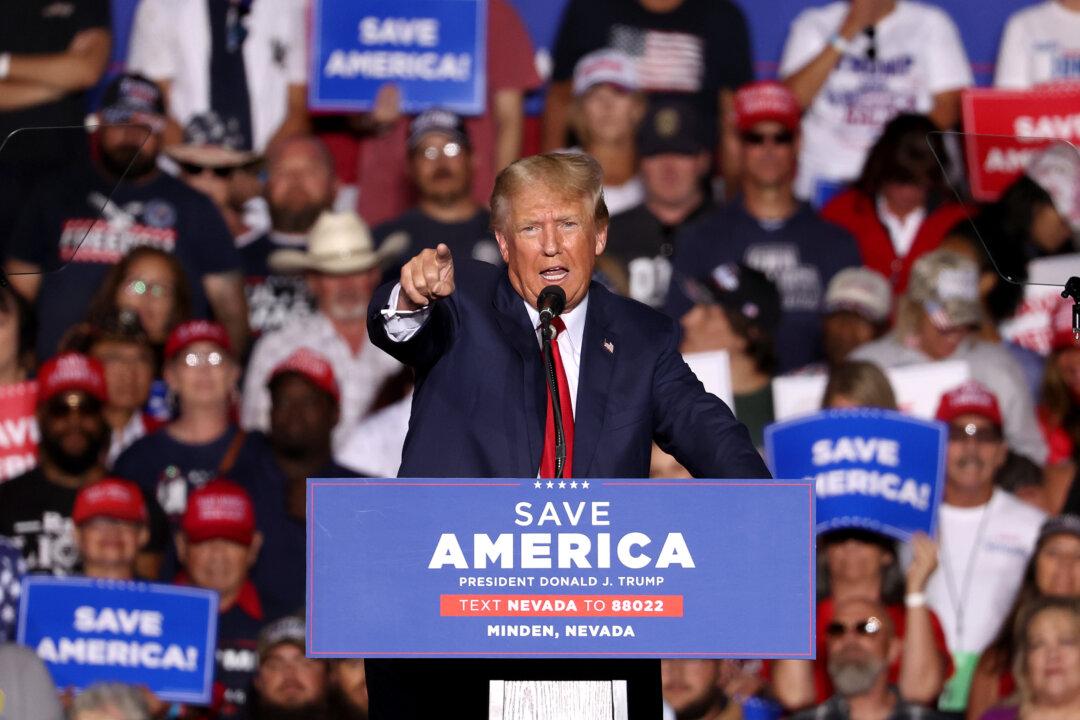At a rally with former President Donald Trump on Oct. 8, Nevada’s Republican secretary of state nominee Jim Marchant encouraged an enthusiastic MAGA crowd to cast their vote for him on Nov. 8 and added his belief about the 2020 election.
“We have something in common,” said Marchant, a businessman and former Nevada state Assembly member. “President Trump and I lost an election in 2020 because of a rigged election.”





